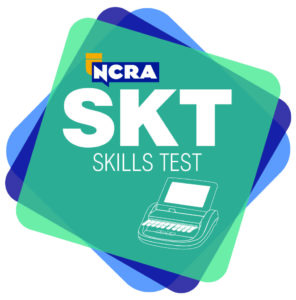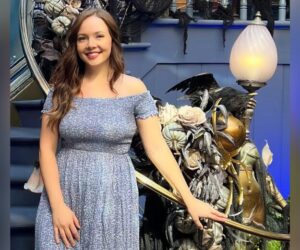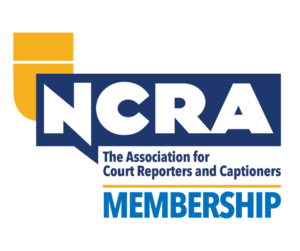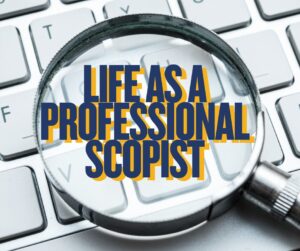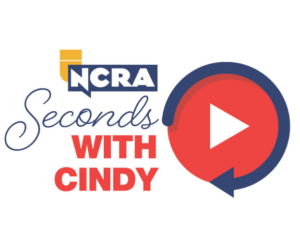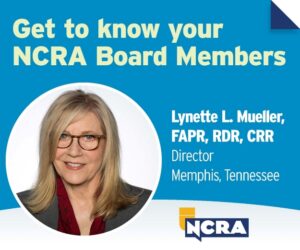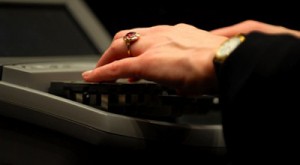 During the premier session held at the 2015 NCRA Convention & Expo in New York City, Past President Nancy Varallo, RDR, CRR, owner of The Varallo Group in Worcester, Mass., found herself inspired by Tami Frazier, RMR, CRR, an official court reporter from Murrieta, Calif., who shared the story about how she taught her sons, Clay and Chase, steno theory.
During the premier session held at the 2015 NCRA Convention & Expo in New York City, Past President Nancy Varallo, RDR, CRR, owner of The Varallo Group in Worcester, Mass., found herself inspired by Tami Frazier, RMR, CRR, an official court reporter from Murrieta, Calif., who shared the story about how she taught her sons, Clay and Chase, steno theory.
“Tami said that she was inspired to teach her sons steno theory after hearing that my husband, Ed, was taught by his own father, a working court reporter,” Varallo said, noting that she wasn’t the only one to be inspired.
“I brought one of my employees to work my booth at the convention, and she came home inspired enough to want to learn to be a reporter. Then, when my daughter indicated an interest in learning court reporting, I offered to teach both of them theory for free. If they wanted to continue, they could then enroll in court reporting school,” she said. “After that, a light bulb went off, and I decided if I was going to take the time to teach two young women, why not open it up to more people? I’m putting in the time anyway, so it seemed to make sense.”
Varallo quickly put out calls to colleagues to borrow steno machines they weren’t using. In mid-November, armed with machines loaned to her by six NCRA members, Varallo was ready to welcome the half-dozen students who signed up for the classes to her office on Tuesday afternoons to start their journeys into the world of court reporting.
The students, whose ages range from mid-20s to 30s, are all either college graduates or have attended college for at least a couple of years, said Varallo, and each is looking for a more meaningful and flexible career. The classes, designed to introduce theory, run for three hours each week, and students are encouraged to practice what they learn throughout the rest of the week. According to Varallo, the classes will be completed in April, at which point she plans to either continue to teach them speedbuilding or encourage them to move to an online court reporting program.
Ashley Lonergan, a phlebotomist at Sturdy Memorial Hospital, Attleboro, Mass., is one of Varallo’s students. She said she heard about Varallo’s classes from her best friend and was motivated to learn more about the profession by her friend’s enthusiasm. “I was initially unsure of what to expect, other than the fact that I would learn stenography. However, by the end of the class I expect to know if I like it enough to pursue a future in court reporting.”
Emily Rylander, an Internet developer for Lexus, of Northbridge, Mass., said she was prompted to join after hearing about the plethora of employment opportunities for a stenographer. “I had no idea that the subtitling for a live television show is done by a stenographer,” she said. “What has surprised me the most about learning steno thus far is that it very similar to learning a new language. My expectations are very high for this course. I knew Nancy was extremely successful and knowledgeable, therefore she would expect us to give it our all. I feel blessed to be able to take a free court reporting course and have such an accomplished teacher like Nancy,” said Rylander, who added that she has every intention of completing court reporting school and entering the profession.
“When I heard that Nancy was providing a free steno class, I was elated. We all know how many schools have closed their doors over the last 20 or so years. Programs like this are exactly what our wonderful profession needs to survive,” said Lorene Eppley Hunt, RPR, a firm owner from Hopedale, Mass. “Nancy is donating her office space, her time, and most importantly, her knowledge and skill; I was more than happy to donate a steno machine to help her program succeed.”
Eppley Hunt also noted that a friend of hers whose son, a high school senior, recently joined Varallo’s classes, thinks it is a wonderful opportunity for him to experiment with court reporting before making a final career choice.
Cassy Russell, RPR, CRR, CRC, a firm owner from Tulsa, Okla., also loaned Varallo a machine because she said she recognized that many people have never seen one except perhaps on television. “If a person can feel, write on, and have an in-person experience with a machine, I believe it is more likely she or he will know whether or not our profession is the right fit.”
A world language teacher at an elementary school, Pamela Billings, also from Massachusetts, heard about Varallo’s free classes through an email sent to her by the state court reporters association. “It was quite the turn of events. I had previously inquired about recommended programs for court reporting and received an email forwarded by the association from Nancy asking about any interest in the program,” she said.
“I had been thinking about learning stenography for several years. I was called in by Nancy for an interview. She spoke enthusiastically and candidly about the training and the profession, and upon the conclusion of that meeting I felt determined that this was what I wanted to pursue,” said Billings.
According to Varallo, her students have completed learning simple-one stroke words and the initial and final alphabet from A-Z. They are now working on phrasing and briefs and sentences, with some speed mixed in.
“I have been most surprised by how much progress we seem to make every week,” said Billings. “The amount of words we can produce increase almost exponentially, simply by learning two or three letters (sounds). After this course, I want to stay with Nancy and continue on speedbuilding.”
While students note how much they are learning, many also acknowledge that mastering steno can also be tough not just on their personal time when it comes to the amount of practice it takes, but also physically.
The most difficult part has been the body aches and arm pain, said Lonergan, who is seriously considering a career in both court reporting and captioning. “It sounds silly because it’s a stationary job. You really to focus on proper posture so you don’t have back soreness,” she said.
“The most difficult part of the class so far is learning the keyboard,” added Rylander. “I want to be able to type fast and not have to look or think about it, but it takes a lot of practice and patience. When I am in class, I can always tell if I did not practice enough as opposed to when I am confident with the material. You definitely have to be willing to dedicate the time,” she said.
“We are doing great,” said Varallo about the classes so far. “Since I’ve had lots of inquiries from people interested in sitting in remotely, I plan to consider offering online courses in the future.”
Meagan Allen, a home delivery shopper from Mansfield, Mass., signed up for Varallo’s classes after hearing about them from a friend. “Learning a new skill is always something to add to a resume,” she said. “I’m still searching for a job that interests me, and this seemed like a great opportunity to learn about and try court reporting.”
According to Billings, the greatest benefit of the class is learning a new skill that is both interesting and transferable to various fields. “My advice to others who consider learning stenography is: TKO EUT. Do it.”
Special thanks go to the following NCRA members who so generously loaned machines to support students of Nancy Varallo’s free steno classes:
- Jan Ballman, RPR, CMRS, NCRF Chair, Paradigm Reporting & Captioning, Minneapolis, Minn.
- Ray Catuogno, Jr., Real Time Court Reporting, Springfield, Mass.
- Lorene Eppley Hunt, RPR, Eppley Court Reporting, Hopedale, Mass
- Robin Nodland, RDR, CRR, LNS Court Reporting, Portland, Ore.
- Cassy Russell, RPR, CRR, CRC, Russell Court Reporting, Tulsa, Okla.
- Jim Woitalla, RDR, CRI, Herbert L. Peterson & Associates, Minnetonka, Minn.
